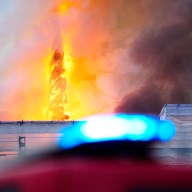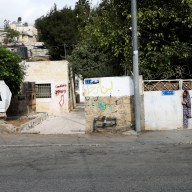By Maher Chmaytelli, Ahmed Rasheed and Isabel Coles
BAGHDAD/ERBIL, Iraq (Reuters) – The Iraqi army said on Sunday it had secured the first safe exit route for civilians to leave Islamic State’s besieged stronghold Falluja, and a Norwegian aid group said thousands of people had already used it to flee in the first day it was open. While it pressed on with its offensive in Falluja, the army also launched a fresh advance in the direction of the northern city of Mosul, Islamic State’s de facto Iraqi capital, under cover of airstrikes from a U.S.-led coalition. The assaults by the Iraqi army are taking place at the same time as advances against Islamic State by U.S.-backed fighters and Russian-backed Syrian government forces in Syria, at the opposite end of the militants’ self-proclaimed caliphate. Fighting on a range of fronts in both Iraq and Syria in recent weeks amounts to some of the biggest pressure on the militants since they swept across much of Iraq and Syria in 2014 and declared their rule over all Muslims from territory that is home to millions of people. In Iraq, the government launched a major operation last month to recapture the Islamic State bastion of Falluja, an hour’s drive from Baghdad. Prime Minister Haider al-Abadi has said troops are delaying advances to protect civilians. The United Nations fears for the fate of up to 90,000 people believed trapped inside Falluja with little food or water. The new exit route, known as al-Salam (Peace) Junction, was secured on Saturday, southwest of Falluja, Joint Operation Command spokesman Brigadier-General Yahya Rasool told Reuters.
“There were exit routes previously, but this is the first to be completely secured and it’s relatively safe,” said Rasool.
About 4,000 people had fled the city over the past 24 hours through the al-Salam Junction, said Karl Schembri, a spokesman in Iraq for the Norwegian Refugee Council, which has been assisting people who escape the city. “We expect thousands more to be able to leave in the coming days,” he said.
The al-Salam Junction route was secured after troops dislodged insurgents from districts located on the western bank of the Euphrates river, opposite Falluja’s city center on the east bank, said Rasool. He did not give a number for the civilians who were able to flee so far using it. More than 20,000 people have managed to flee the city and its surrounding area since the Iraqi army began the offensive on May 23, the United Nations said on June 8.
But the lack of secure routes made their escape extremely difficult and dangerous. At least a dozen people were reported to have drowned while crossing the Euphrates.
Those who managed to reach government-held lines said they walked for days to avoid sniper fire and explosive devices planted by Islamic State insurgents along roads to delay the army’s advance. A government official said the militants were putting up a tough fight defending the city, long an insurgent bastion where U.S. forces fought the heaviest battles of their own 2003-2011 occupation. The army is receiving air support from the U.S.-led coalition and ground support from Iranian-backed Shi’ite militias and Sunni tribal fighters.
CAMPAIGN NEAR MOSUL
The Falluja campaign veers from Washington’s battle plan, which sees the main fight looming in Mosul, the biggest city in either Iraq or Syria under Islamic State control.
Iraqi troops captured a village on Sunday that they could use as a crossing on the Tigris river as part of an eventual campaign near Mosul in the north.
The Haj Ali village sits on the eastern bank of the Tigris, opposite the Islamic State hub of Qayyara, where there is an
airfield the army aims to capture and use as a staging ground for future operations on Mosul.
The U.S.-led coalition said it carried out eight strikes near Qayyara on Saturday, destroying tactical units, mortar systems, rocket rails and facilities to produce car bombs.
Islamic State overran Mosul two years ago and went on to proclaim a caliphate straddling Iraq and Syria, but has come under increasing pressure in recent months, losing ground to an array of forces. Last week, Iraq deployed an armored division along with boats and bridges, to prepare for an eventual crossing of the river to Qayyara.
(Reporting by Ahmed Rasheed and Maher Chmaytelli; Writing by Maher Chmaytelli; Editing by Andrew Heavens and Peter Graff)















